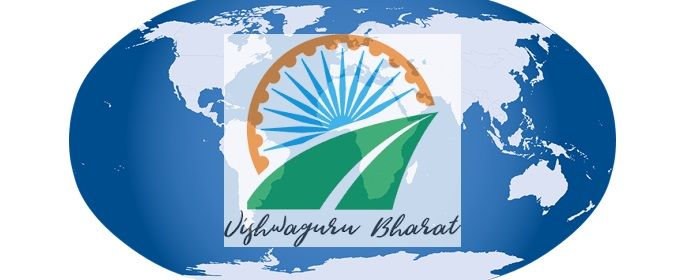Is Bharata Prepared to Lead the World in Education?

Education is something that impacts each individual, whether as a student, as a parent, as a teacher or as someone in society who looks for education to fulfil their requirements and problems. All of us wish to have high quality education; we wish for world class education. When we say World Class Education, what do we mean by it? What kind of education can we call as being World Class?
Just before we ponder and explore, let us take a look at history. The education that all of us have gone through and is still being imparted was forcefully brought in by the British based on the recommendation made by Thomas Babington Macaulay in 1835. This was done in order to benefit the Industrial Revolution that was happening in Britain. They required many people to fulfil their requirements in a slavish manner and this education system effectively helped to do it. Having at their disposal educated people to do as they were bid to do helped the British to become an economic superpower at that time.
We have still continued with this system without bringing in any significant change. Until date children are expected to clear exams and score grades in order to earn degrees. There is no prospect to think and learn independently at all. Whether it is CBSE or any of the State Boards, what we have been following is a modified version of the Macaulayan system only. The outcomes of this are: students undergo intense mental stress, teachers are always under pressure to complete the syllabus and show results, the parents are confused and the society that the students graduate into is unhappy with the “products” of the education system when it comes to employability. Without doubt this is not the education system that must continue.
***
While talking about world class education, we look for education systems from around the globe that are examples in one or more aspects. Here are some systems that have earned a place for themselves in the present education scene.
As part of early education, Finland and Belgium teach children ways to cooperate and communicate among themselves. Stress-free high-quality education is provided in these countries. Right from the start, the children learn their mother tongue, one national language and one foreign language, three languages in all. Learning multiple languages is found to enhance the brain capacity and functioning of the child. At the same time, such a system helps to preserve the native languages down the generations.
The Japanese education system lays emphasis on spirituality and community living. The children learn generosity, compassion, empathy, respect for others, handling nature with care and so on. They learn the importance of cleanliness: the children clean their schools by themselves.
International Baccalaureate, a Swiss board, gives a lot of importance of self-learning which greatly amplifies student learning. The Diploma Programme that they offer is valued highly all over the world. Students have the freedom to choose the combination of subjects that they want to pursue. This provides a lot of impetus for the students to study these subjects in depth.
Traditional Bharatiya education system lays a lot of emphasis on self-evaluation. This system helps in ensuring high quality. This is the reason we still have the traditions that follow the guru-shishya parampara – that does not have a grad-based examination system – despite all the turmoil that our nation has undergone.
Many Universities around the world offer flexibility to study to the students. This means that students are certified at the end of each stage of education so that they can continue later if they want to take a break. The credits of the student are maintained in the credit bank to be used at a later stage for further studies.
Israeli education system is well-known for its orientation towards research and development. Research is the only way to solve the many problems that we face as part of civilised life.
Now that we have listed out some of the highly valued education systems of the world, what is the “World Class Education” that we want in Bharata?
***
Let us take a look at the following details:
During Lower Primary stages, importance will be given for children to learn cooperation, communication and such social transaction skills.
As they grow, children will learn good habits and manners and will learn the basics of reading, writing and arithmetic in a stress-free manner. They will learn in their native language. Apart from this, they will learn another Bharatiya language and a foreign language. These will be taught in a fun way to develop their communication skills.
As the students complete Middle School, students will begin a four-year High School programme. This means that since students begin High School two years earlier than they do now, they will start focussing on their area of interest earlier. Students have the freedom to select the subjects that they want to pursue. This helps save student years that are presently wasted in learning subjects that hold no relevance for them. They also advance quicker in the subjects of their interest. Thus, by the time they complete school, they are qualified enough to pursue higher education or to begin a vocation.
As they progress to college education, at the end of each year, they can opt to take a break and resume their education at a later stage. The credit bank will reflect the credits that they have earned.
Research is stressed upon if they want to pursue any degree programme.
All the above together are being brought into our Bharatiya education system. This is called National Education Policy (NEP). Certainly it is a world class system that we are aspiring to build.
***
If we carefully observe, the only point that is missing from the earlier exemplary systems is the emphasis on quality as found in the guru-shishya parampara. This lies entirely in the hands of the educators. Are we ready to take the plunge by setting high quality standards for ourselves, be it our personal discipline, our ability to learn, our keenness to bring out the best in our students, to make Bharata feel as proud of us teachers as we are of our Bharata? This is perhaps the most important factor that is going to determine if Bharata is ready for a truly World Class Education.

